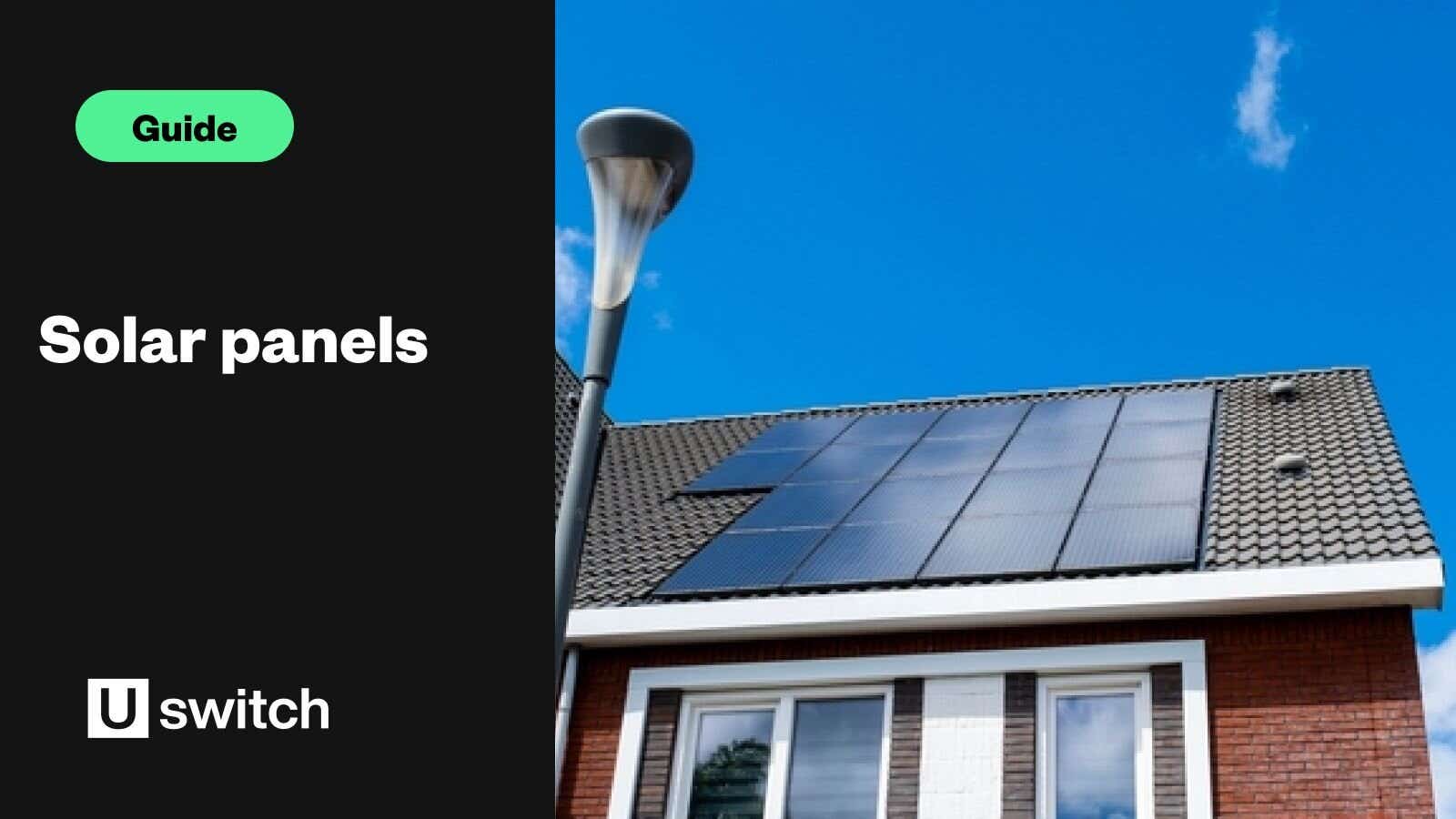What are solar panels?
Solar panels are panels made up of individual cells which conduct sunlight into energy (although they don't need direct sunlight to work).
When the panels are hit by sunlight, they produce an electrical charge which is converted into alternating current (AC) electricity and used to power your home and appliances..
What are the benefits of solar panels?
There are both pros and cons to investing in solar panels, so it's important to make sure you've considered all possibilities before committing to an installation.
Pros
- Lower energy bills
- Lower carbon footprint
Cons
- High initial outlay
Are solar panels right for me?
Homeowners can be wary of investing in solar panels because of their fairly high initial installation costs along with concerns about their effectiveness. If you’re convinced they’re the right option for you, you just need to make sure you have enough space for the installation to be worthwhile and that you’re actually allowed to install them (mainly a concern if you live in a listed building.
How much do solar panels cost?
According to the Energy Saving Trust, the average domestic solar PV system costs around £5,500. However, the cost could vary considerably depending on a number of factors.
- Size of array - the bigger the array, the more it will cost
- Difficulty of roof access - the more difficult access is, the more it will cost
- Panels or tiles - tiles are integrated into the building itself rather than sitting on a surface like panels do, so this will increase the cost.
Can I make money from my solar panels?
If you’re struggling to justify the cost of the solar panels, you can start recouping some of the cost almost immediately with export payments. There will probably be times when your panels generate more electricity than your property can use. When this happens, that surplus electricity can be exported to the grid for use by others and, as long as you and your supplier are both signed up to the Smart Export Guarantee, you’ll be paid for that electricity.
Do solar panels work when it’s not sunny?
Solar panels don’t actually need direct sunlight to turn into electricity. Cloudy days still generate electricity, though the stronger the sunlight, the more is generated. But living in the notoriously grey UK shouldn’t put you off installing them if you think they’re right for you.
Where can I find reputable solar panel installers?
There are now many companies which install PV solar panels in different areas of the UK. When it comes to putting up your solar panels, in the vast majority of cases you will need to get in touch with solar panel installers. You can find a list of qualified solar panel installers on the MCS website. We also recommend choosing a company that is registered with the Renewable Energy Consumer Code (RECC).
How long do solar panels last for?
Solar panels usually have a 25-year manufacturers' performance guarantee and you should get another 10 to 15 years of use beyond this.
The inverter - the piece of equipment that converts the Direct Current produced by the panels to Alternating Current on which the grid runs - needs replacing after about 12 to 15 years.
How do solar panels work with my gas and electricity supplier?
Nothing will change, except that you'll pay less for your bills. You can stay with your existing energy supplier, who will take readings from your meter as normal and bill you as usual.
FAQs
What is the Feed in Tariff?
Under the government-backed Feed-In Tariff scheme, you can earn money for every unit contributed back to the National Grid. The scheme closed to new applicants in 2019, but if you already have a Feed In Tariff you should continue to receive payments.
Will the quality of my electricity suffer?
No, you won't notice any difference. If the PV panels aren't producing enough electricity, you'll just use electricity from the grid instead. Solar energy is unlikely to fulfil all of your energy needs, but it can make a significant contribution.
Do I have to switch solar panels on each day?
No. They're always on.
Can I still switch my gas and electricity supplier?
Yes, you can still switch your gas and electricity supplier if you have solar panels.
Can solar panels add value to my property?
They might do eventually, but it's unlikely in the short term.
Does my mortgage company need to know if I install solar panels?
Solar panels could be viewed as a modification by mortgage lenders, but they're unlikely to affect mortgage repayments.

